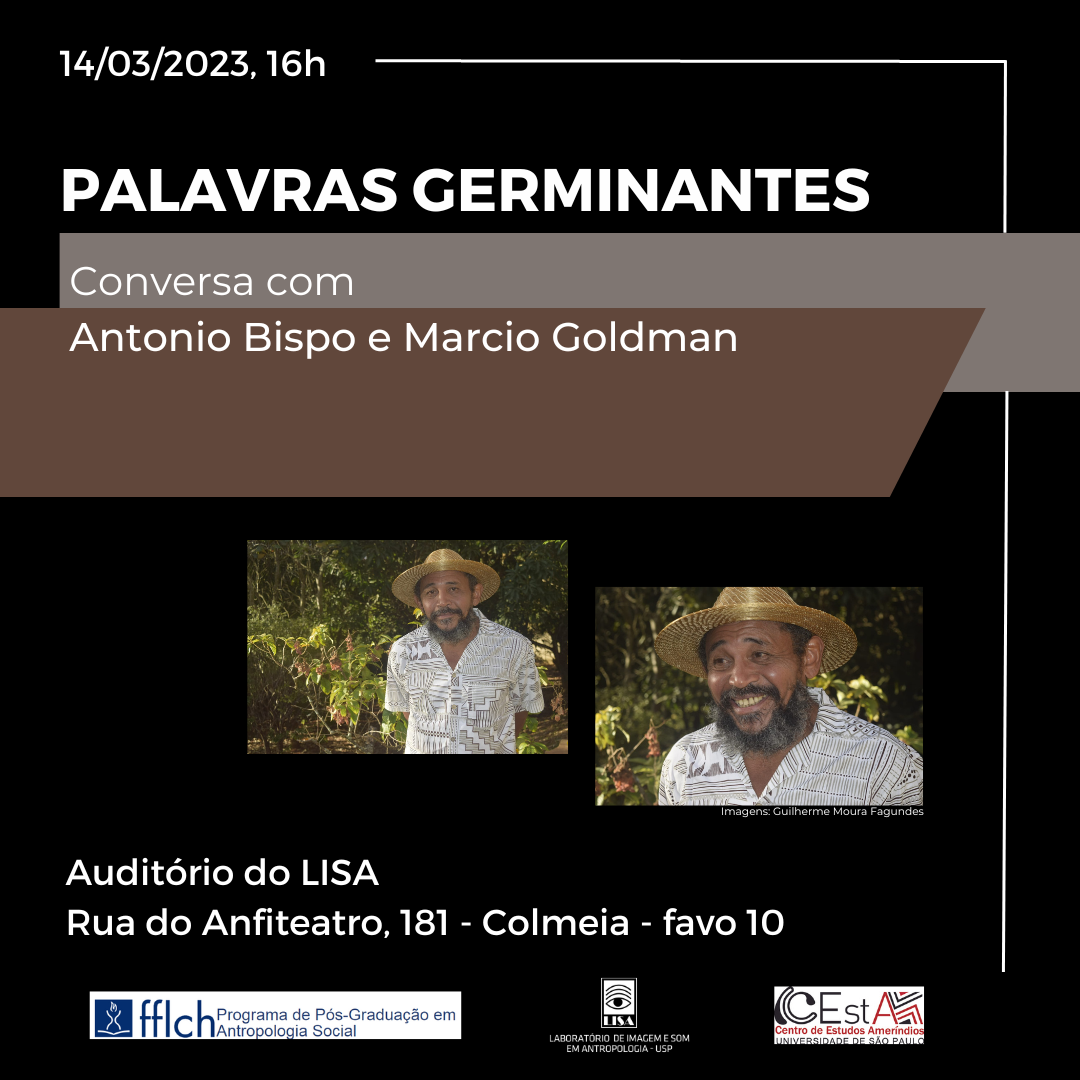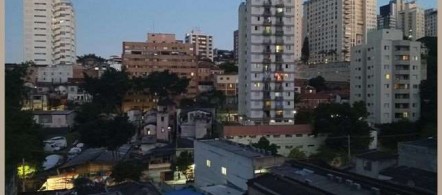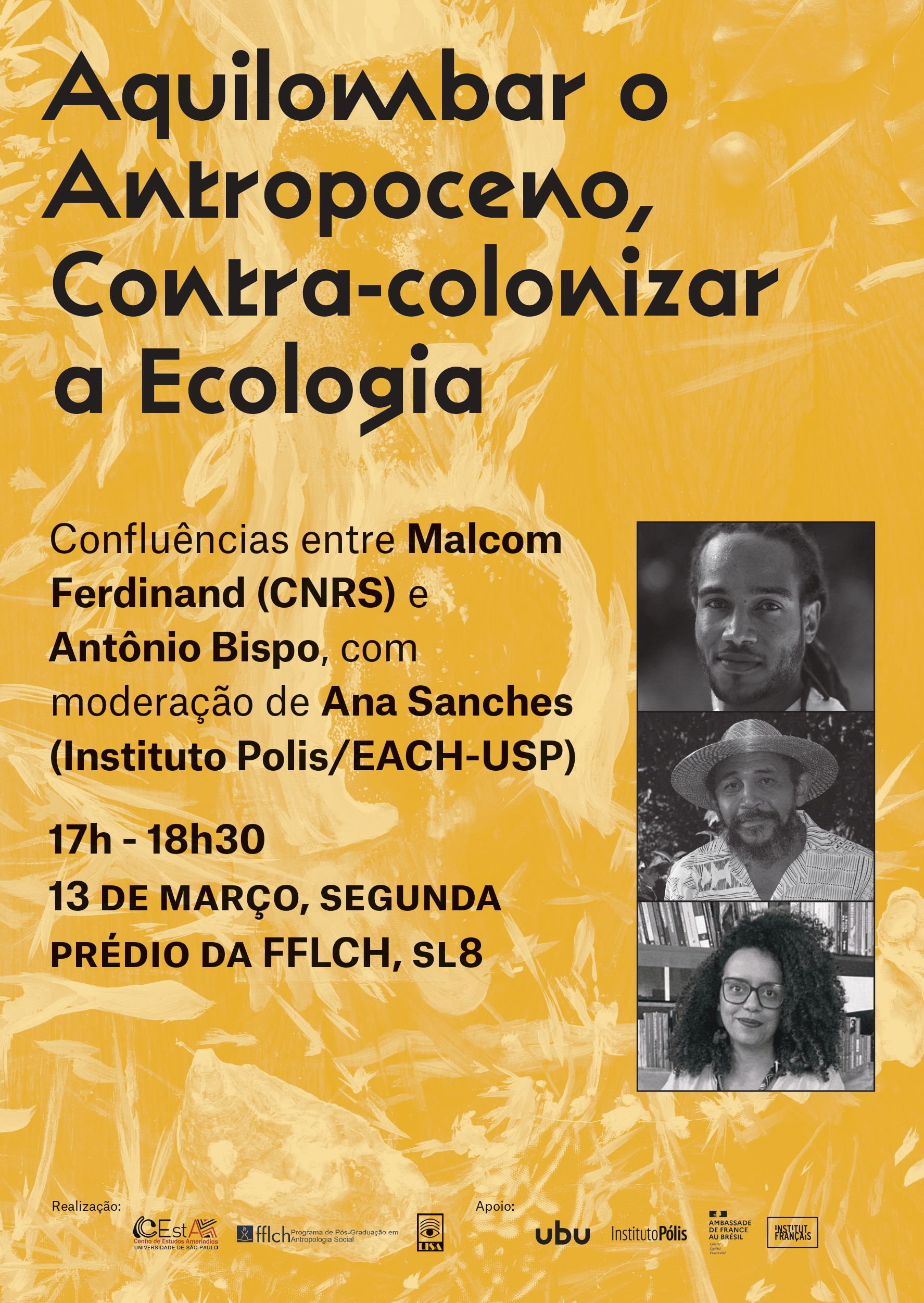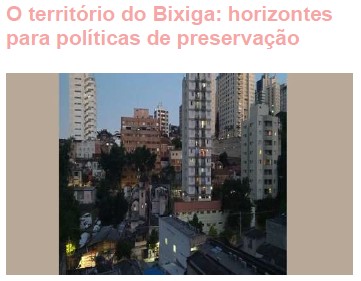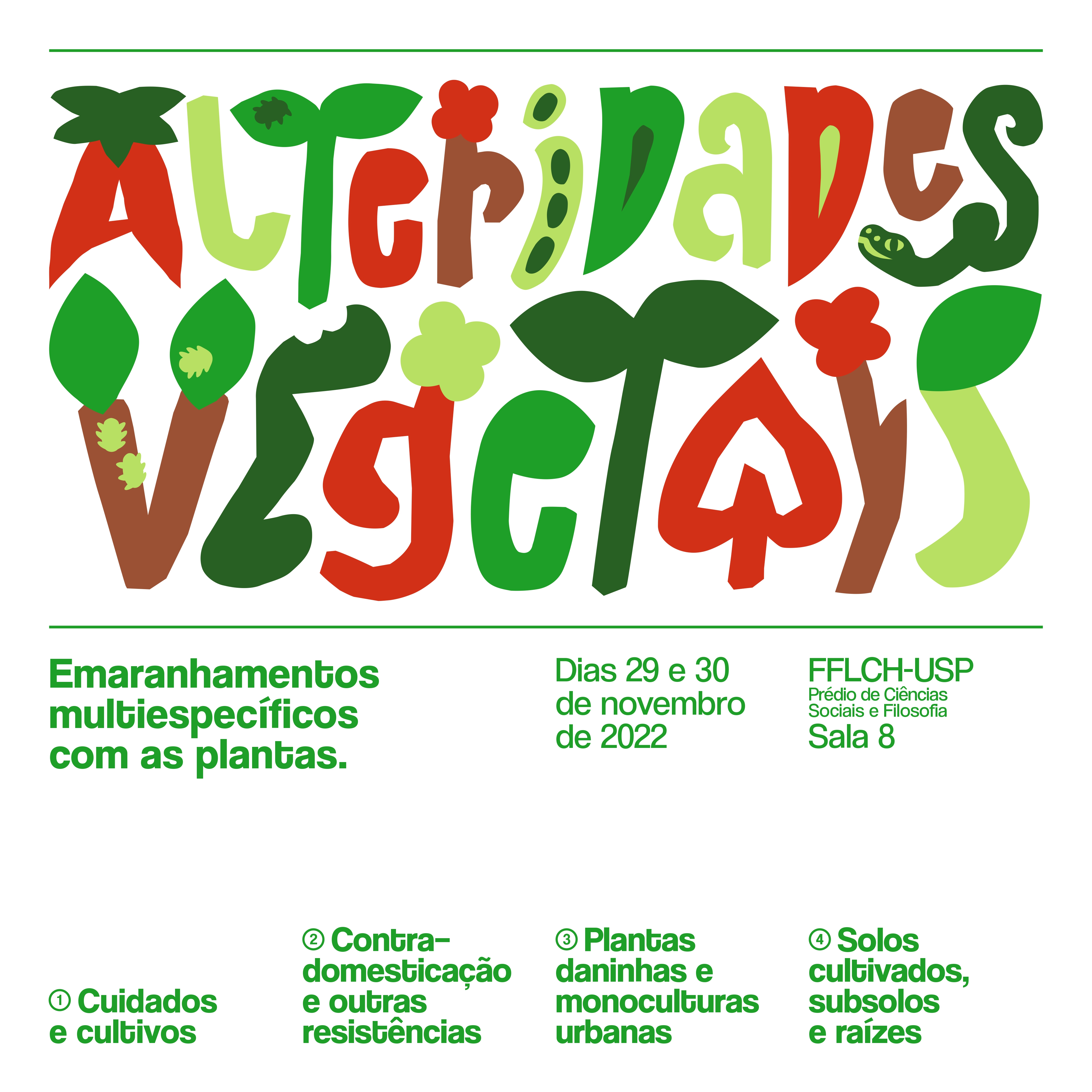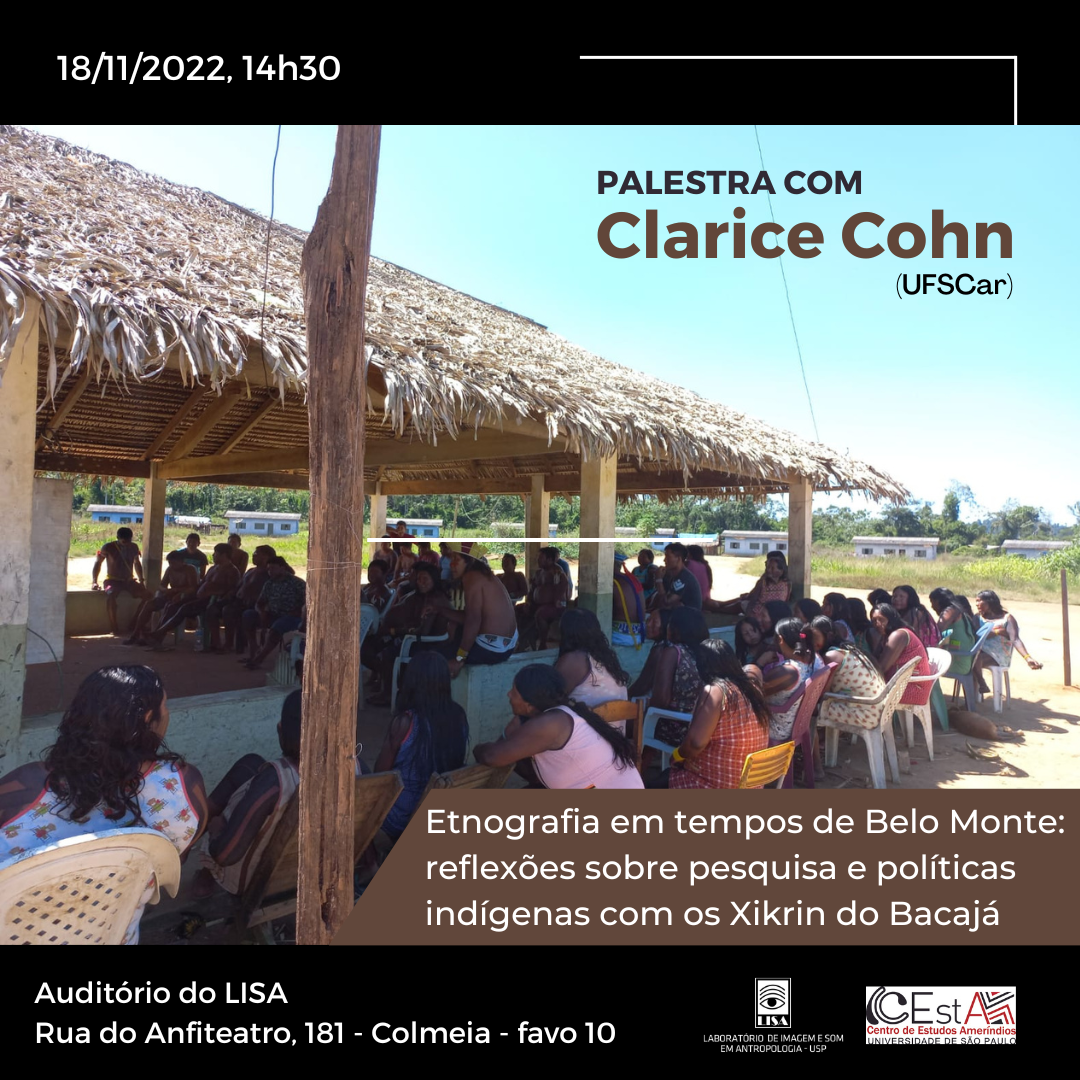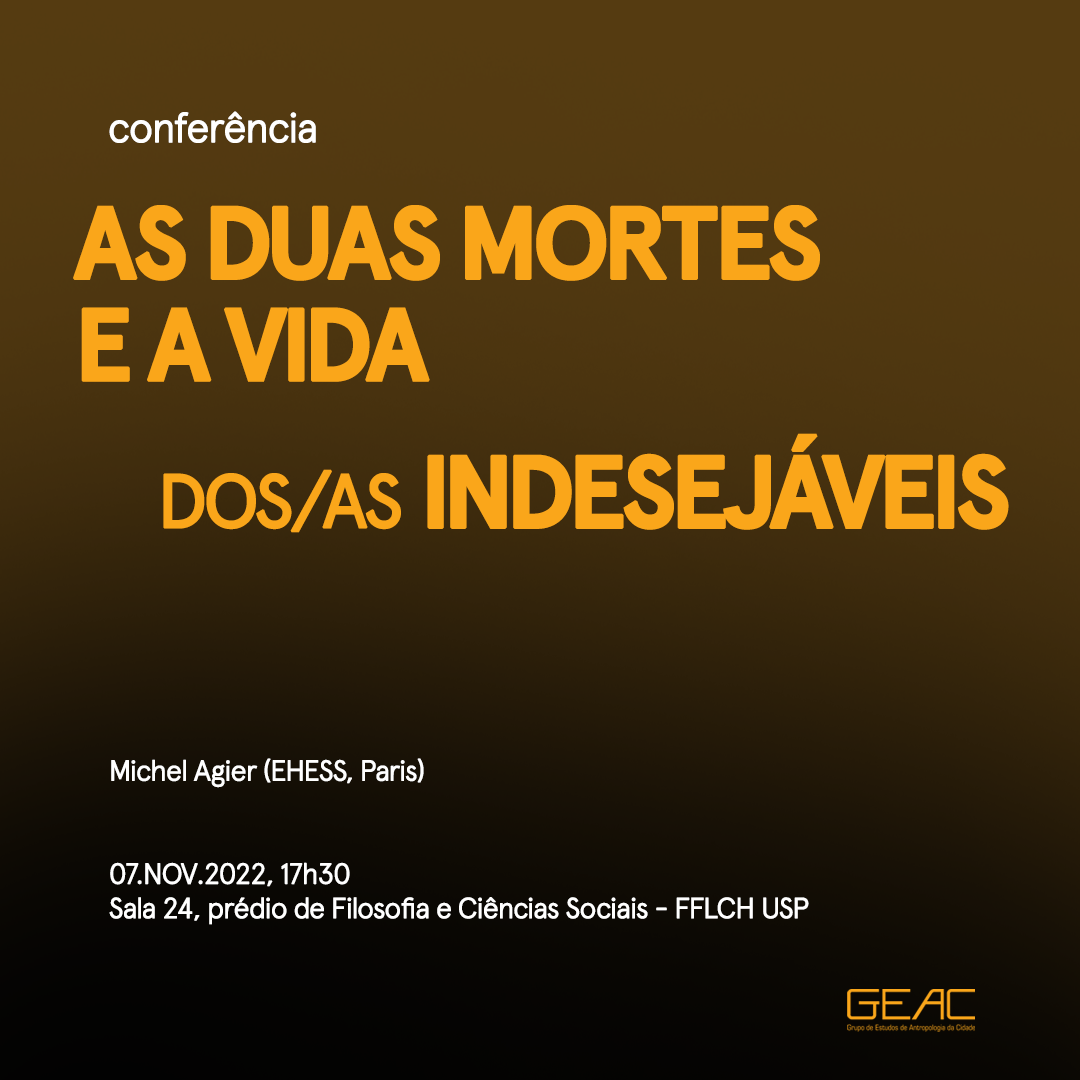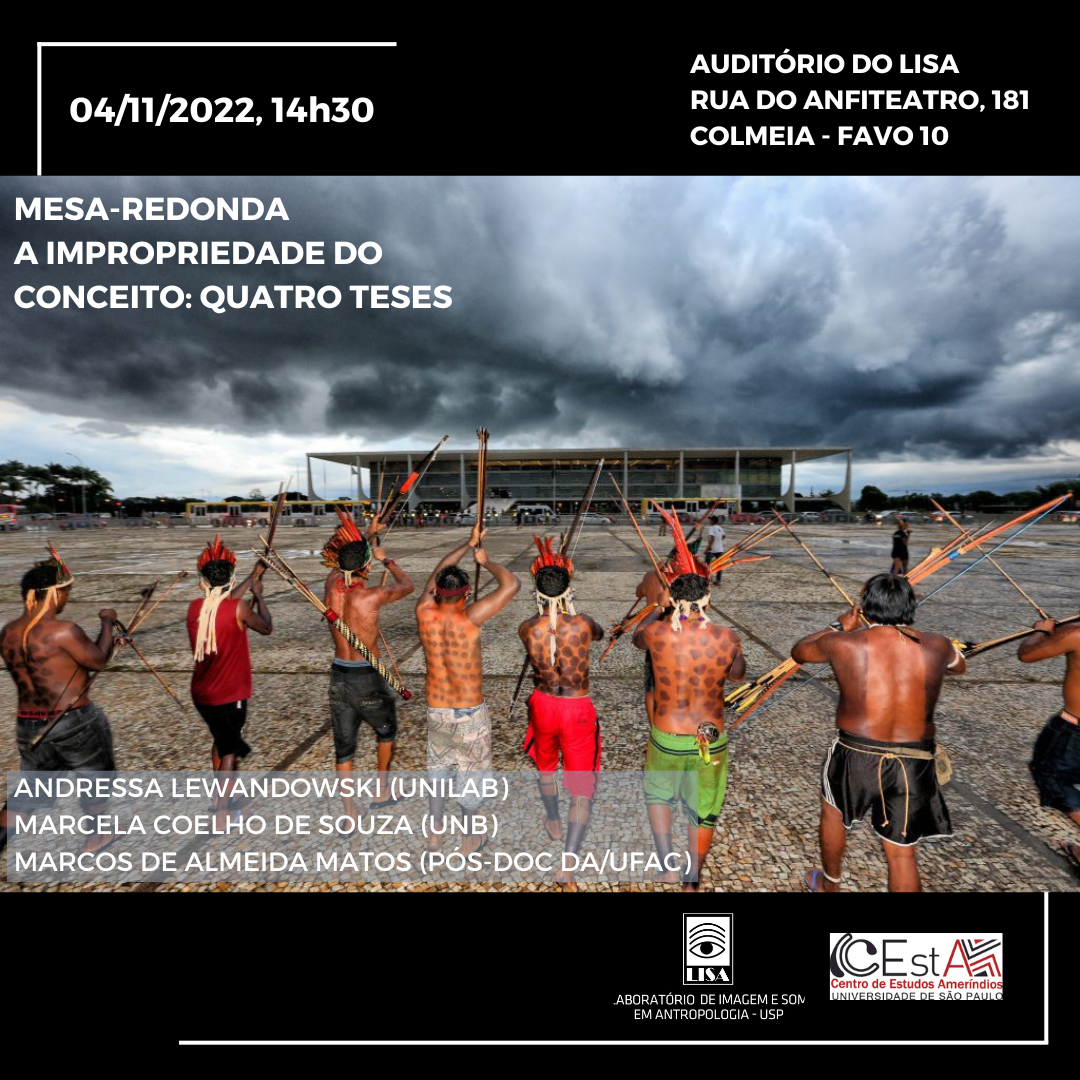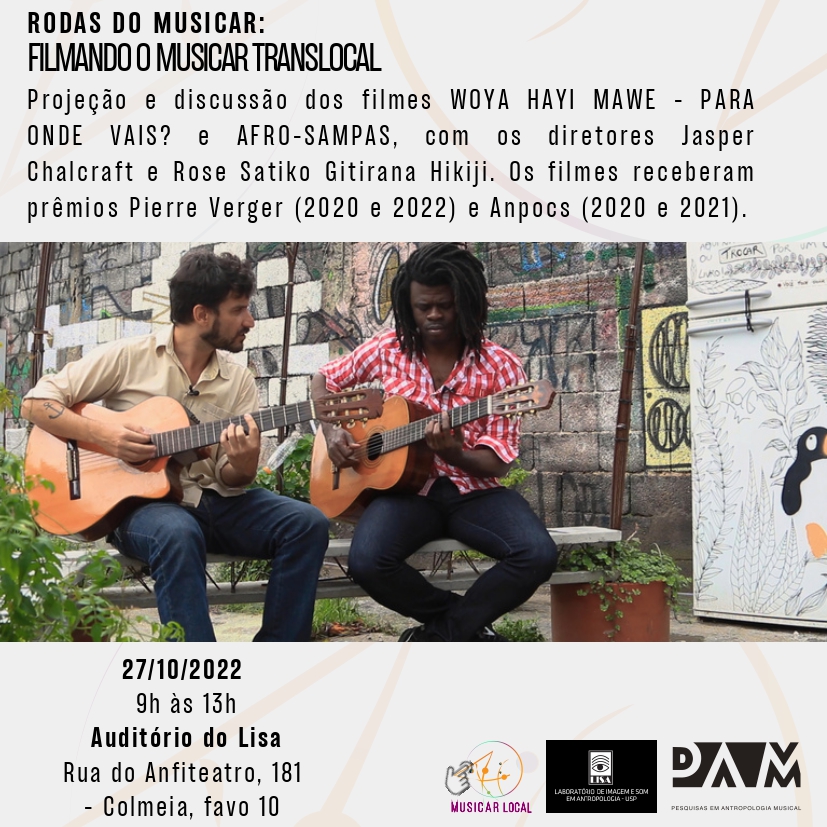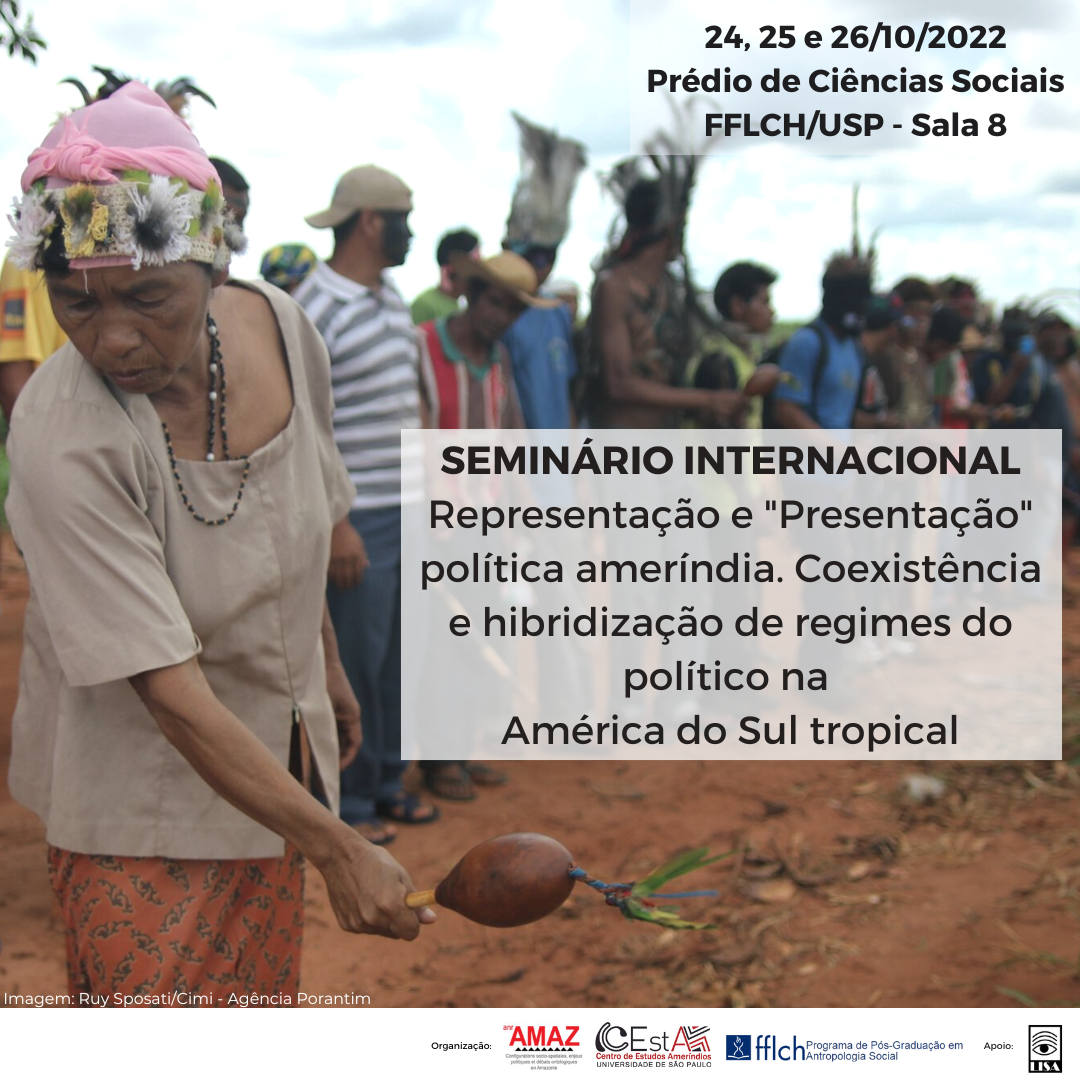Events
3/14
Table 1 - Cultural dynamics in the city: knowledge and practice networks
With Heitor Frúgoli Jr. and Egbome Jennifer from Xangô.
3/16
Table 2 - Flows in the city: multiethnic mosaic of Bixiga
With Sheila Schneck and José Adão de Oliveira.
Mediation: Michel Françoso
More details at https://
Realization:
Center for Amerindian Studies (CestA) FFLCH-USP
Graduate Program in Social Anthropology (PPGAS-USP)
Laboratory of Image and Sound in Anthropology (LISA-USP)
Support:
● Publisher UBU
● Ambassade of France to Brazil
● Institut Français
● Polis Institute
The forum brings together anthropology and philosophy researchers to extract
developments of the book “A decolonial ecology: thinking from the Caribbean world”, by
Malcolm Ferdinand. Two round tables will be dedicated to the main concepts and
issues of the book, composing a repertoire that articulates themes such as the racial issue,
Anthropocene, quilombola ecologies, Caribbean world, environmentalism and cosmopolitics. The
event ends with a conversation between Malcom Ferdinand and the thinker and farmer
quilombola Antônio Bispo.
[Monday, 03/13/2023]
Session 1 (10am – 12pm). Moderation: Stelio Marras (IEB/USP)
Location: LISA Auditorium
(The forum will not be simulcast, but the recording will be available on the
BASKET.)
(15min) Guilherme Fagundes (USP) – The double racial divide
(15min) Rodrigo Bulamah (UNIFESP) – From Gaia to Ayiti
(15min) Karen Shiratori (CESTA/USP) – From the Anthropocene to the Negrocene
(15min) Igor Scaramuzzi (Iepé/CPI-SP) – Quilombola Ecologies
Debate – 11am-12pm.
Session 2 (2pm – 4pm). Moderation: Renzo Taddei (UNIFESP)
Location: LISA Auditorium
(15min) Eraldo Souza dos Santos (Université Paris 1 Panthéon-Sorbonne) – Ecology and
civil disobedience
(15min) Henyo Barreto (UnB/ Wageningen University) – Noah's ark on the pier
afropindoramic
(15min) Alyne Costa (PUC-Rio) – Taking care of fractures between Earths and worlds
(15min) Renato Sztutman (USP) – Decolonial Ecology as Cosmopolitics
Debate – 3pm-4pm.
Break. 4pm-5pm
Session 3 (17:00 – 18:30). Moderation: Ana Sanches (Instituto Polis/EACH-USP)
Location: Political Science Room 08 - FFLCH
Confluences between Malcom Ferdinand (CNRS) and Antônio Bispo (Quilombo do Saco-
Tannery, PI)
Conference Link: https://www.youtube.com/watch?v=7RCuzE6b83k
2/14
Table 1 - Thinking about the city: public authorities and communities
With Amelinha Teles and Raquel Schenkman.
2/16
Table 2 - Preserving the city: territories and heritage
With Raquel Rolnik and Luciana Araújo.
Mediation: Michel Françoso.
More details at https://centrodepesquisaeformacao.sescsp. org.br/atividade/o-territorio-…
The objective of the Alteridades Vegetais event is to bring together researchers, indigenous and non-indigenous, from different areas of knowledge of human sciences interested in plant life and its multispecific entanglements. The so-called "vegetable interactions" make room for innovative and interdisciplinary approaches that invite us to experiment with other thoughts and epistemologies, with a view to making room for new conceptual tools, less centered on humanity as its paradigmatic figure. The event aims to encourage discussions that depart from other-than-human socialities, in particular, from the agencies of plant beings in order to weave alliances in the face of the current deepening of the environmental and climate crisis.
Ethnography in the times of Belo Monte: reflections on indigenous research and policies with the Xikrin do Bacajá
Since 2009, I have been following the Xikrin do Bacajá in their work regarding the construction of the Belo Monte Hydroelectric Power Plant, which impacts its river, a tributary of the Xingu River in its Volta Grande, where the so-called Reduced Flow is located. of the work. With the drought of the Xingu, Bacajá has also dried up, impacting their lands and their lives. The lecture covers two main points: the first, which can be defined as methodological, deals with the impacts on the anthropologist's relationship with this people, which completes three decades, having effects on ethnographic work; I argue that, in addition to the kinship I experienced until then, through which they dedicated themselves to changes in my body, in my diet, and in teaching efforts so that I could effectively learn and be a voice for those who do not usually hear them, I started to to experience with them, in the face of countless defeats and struggles, an alternation between kinship and enmity, which I seek to demonstrate to be the type of alterity relationship that defines them, in doing themselves and others, sometimes Mebengokré, sometimes enemies. In the second, which is directly linked to the first by their expectation that I could act as their partner, I deal with the way in which they move from war to politics, in their confrontations with the State, the entrepreneur and her outsourced services, the MPF , among others, from the licensing process to the operation of the plant, reflecting on the different ways of doing politics and a reflection, with them, on the limitations of the policies of the kuben, the non-indigenous, who fail to listen to them and are ineffective in responding to their demands. Therefore, from the limitation in admitting indigenous knowledge about the impacts on the rivers and their lands, to the way these bodies have acted, passing through ethics in politics, I accompany the Xikrin in their new perceptions of what the State and politics are. non-indigenous people, and how they have been working to reinvent a warlike way of doing politics.
Michel Agier, anthropologist and research professor at the École des Hautes Études en Sciences Sociales (EHESS), will deliver a conference whose focus, on African refugees and migrants in Europe, is based on long-term research. It will be on 11/7/2022, Monday, at 5:30 pm, in room 24 of the Philosophy and Social Sciences building (event promoted by GEAC-USP).
We propose to discuss four theses that accompany indigenous discourse and practices, from their escape in the use of ideas of land and territory, kinship and rights, community and people. In doing so, we also seek to observe its reflections on the “anthropological universal” of property, in what concerns the relationships between people and between people and things, but also in relation to Property as an (almost?) universal schematism that organizes the relationship between ideas, concepts and their objects and instantiations.
Andressa Lewandowski (Unilab)
Marcela Coelho de Souza (UnB)
Marcos de Almeida Matos (Post-doc DA/UFAC)
The Thematic Project "Local music: new tracks for ethnomusicology" and PAM - Research in Musical Anthropology invite you to the event RODAS DO MUSICAR:
Session 2: "Filming translocal music"
Projection and discussion of films WOYA HAYI MAWE - WHERE ARE YOU GOING? and AFRO-SAMPAS, with directors Jasper Chalcraft and Rose Satiko Gitirana Hikiji. The films received Pierre Verger (2020 and 2022) and Anpocs (2020 and 2021) awards.
10/27/2022
9 am to 1 pm
LISA-USP Auditorium
Rua do Anfiteatro, 181 - Colmeia, honeycomb 10
Session 3:
"Local music in the journalism of Mário de Andrade and Fernando Lopes-Graça"
"Rebuilding (more) safe spaces in Berlin's underground"
With the presence of Guilhermina Lopes, postdoctoral fellow at IEB-USP, and Gibran Teixeira, postdoctoral fellow in Anthropology-USP.
10/27/2022
2:30 pm to 5:30 pm
LISA-USP Auditorium and online broadcast
https://meet.google.com/meu-wesz-tmq
Since the emergence of the first indigenous organizations in tropical South America in the 1970s, a process of exponential pace has led Amerindians to an intense participation in national politics both in the non-governmental sphere and in the official channels of the countries in which they are located. . The emergence of this form of politics did not, however, mean the disappearance of the Amerindian forms of politics that continued to evolve both in parallel and in relation to the new politics. If, in Amerindian politics, the delegation of power is much more exceptional, in the other politics, power is almost always delegated to the leader who acts as a spokesperson for those represented. This form of the political can be called “representative”, while the one that avoids the delegation of power could be qualified by the neologism “presentative”. This seminar intends to take a closer look at the moments in which these forms manifest themselves.
Organization: Alexandre Surrallés (ANR – AMAZ project coordinator), Renato Sztutman, Adriana Testa, Marcio Silva (USP/CEstA/AMAZ Team).
Support: PPGAS/USP and LISA
Seminar Schedule
Table 1: 10/24 Monday – afternoon (from 2:30 pm to 5:00 pm)
Opening
Ama-zomia or affectivity against the State - Alexandre Surrallés
Plurinational State and Indigenous Political Representation – Mauricio Terena
Links of representation and presentation between the Enawene-Nawe - Marcio Silva
Table 2: 25/10 Tuesday – morning (from 10 am to 1 pm) -
Policies of Consideration and “Presentation” - José Antonio Kelly & Marcos de Almeida Matos
Intertwining representative and participatory politics: indigenous protagonism in democratization processes in Brazil and Latin America – Luís Roberto de Paula
Representing the native community in the Peruvian Amazon - Magda Helena Dziubinska
Act of absence. The representation under tension within the Autonomous Territorial Government of the Wampis Nation (Perù, Aent Chicham) - Paul Codjia
Table 3: 10/25 Tuesday afternoon (2:30 pm to 5:00 pm)
Mbojoapyva: Kaiowá leaders in the Amambai Reserve, MS – Celuniel Aquino Valiente
Politics between the Kaiowá and Guarani in MS: oscillations and connections between indigenous politics -teko joja and non-indigenous politics -karai politics – Levi Marques Pereira
Politics and Mborayvu (Generosity) – Lucas Keese and Tiago Honório
Politics as Metaphor and Metonymy: Representation and Presentation in Guarani Mbya Circulation Networks – Adriana Queiroz Testa
Table 4: 10/26 Wednesday – morning (from 10 am to 1 pm)
The genre of politics: transformations of shamanism and leadership in the Upper Xingu – Antonio Guerreiro
Taking the words – politics between Guarani and Kaiowá women – Lauriene Seraguza
Cultivating Politics: A Conversation with the Runa People of Sarayaku – Marina Ghirotto
Indigenization of Brazilian institutional policy: notes on candidacies of indigenous women in the 2022 election – Renato Sztutman and Karen Shiratori
Table 5: 10/26 Wednesday afternoon (2:30 pm to 5:00 pm)
A Chief's Name: Politics and Names Among the Aweti – Marina Vanzolini Figueiredo
Visionary diplomats. The political subjectivations jibaro in the lower Marañón (Peruvian Amazon) – Thomas Mouriès
Without singing there is no party, without singing there is no struggle: reflections from the kanhgág tỹnh – Paola Andrade Gibram
“Authority that counts, distributes”. Reflections on representative urine policy based on local models of raw meat circulation. – Emanuele Fabiano
Closing


